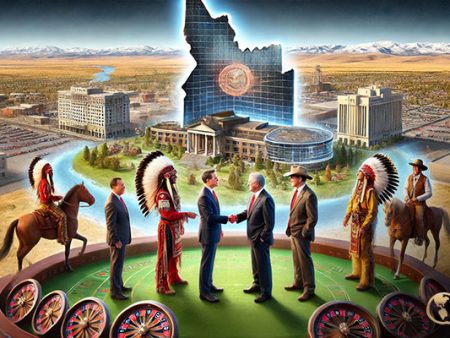As New Hampshire explores expanding its charitable gaming operations, slot machines could become a new feature in the state’s casinos, potentially matching the slower gameplay of historical horse racing (HHR) machines.
Exploring new gaming avenues:
Currently, New Hampshire’s gaming halls leverage HHR machines as a legal workaround to offer slot-style gaming without directly implementing traditional slot machines. These machines allow players to bet on reruns of horse races using a pari-mutuel system, creating competition among players rather than against the house. Notably, these machines enforce a five-second delay between each play, ensuring a slower pace that contrasts with the rapid play of typical slots.
A state commission has put forth a recommendation to lawmakers to consider allowing true slot machines in gaming venues. This move, according to State Sen. Tim Lang, who sits on the gaming committee, could not only generate significant additional revenue but also reduce operational costs for casino operators, the state, and charitable organizations.
Slot machines, which depend on simple algorithms to generate random numbers, are less complex and potentially less expensive than HHR machines, which require access to a vast database of horse races. “We want to make sure that the speed of play is consistent with what’s currently being used in HHR,” Sen. Lang emphasized, as Concord Monitor reports, addressing concerns from responsible gaming advocates about the potential for addiction if slots operate at full speed.
Before moving forward with such legislation, the commission engaged Spectrum Gaming Group, a consultancy from Pennsylvania, to study New Hampshire’s gaming industry and draw comparisons with other states. Their findings confirmed that the revenue distribution from table games is on par with national standards, and the allocation from HHR games is competitive.
Local community responses and legislative actions:
Despite the economic benefits, the expansion of casinos isn’t uniformly welcomed across New Hampshire. Some areas, like Nashua, which hosts multiple casinos, have seen community debates about the cultural impact of gambling establishments. Legislation such as House Bill 1223, which would have allowed local governments to decide on casino operations within their jurisdictions, passed the Senate and House but stalled before reaching Governor Chris Sununu.
Patrick Abrami, chair of the study commission, advocates for local control, suggesting that towns and cities should have the autonomy to opt in or out of allowing casinos, much like they do with Keno games. “There’s nothing wrong in communities having ordinances about this – whether they want them, or whether they don’t want them,” Abrami stated.
The commission is also pushing for a review of how charities are integrated into casino operations. Currently, the process for selecting charities to receive casino donations is unregulated, leading to uncertainties among non-profits about their selection or rejection.
The gaming industry in New Hampshire is projected to grow significantly, potentially reaching $1.1 billion within three years, driven by existing revenue trends and new operators entering the market. Originally intended for small, local businesses, the scope of charitable gaming has broadened considerably, attracting larger, out-of-state operators.
Sen. Lang noted, “The casino destination argument, that ship sailed. New Hampshire had its opportunity to have a destination type casino, which it chose not to do that in light of these charitable gaming operations instead.”
Source link
Vanja Mitic 2024-11-05 14:28:23



















